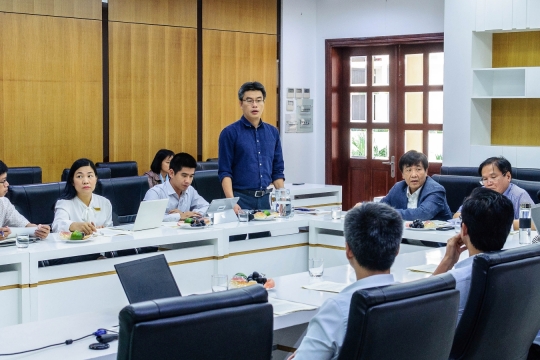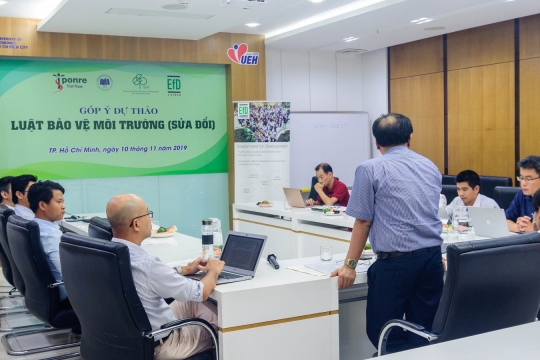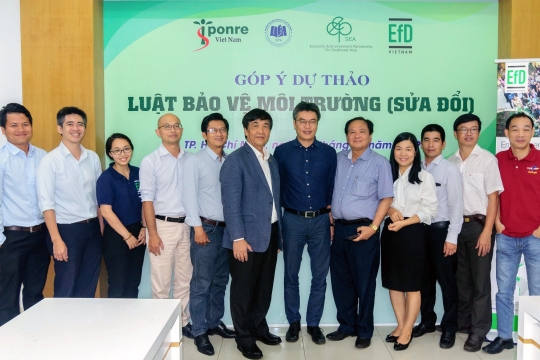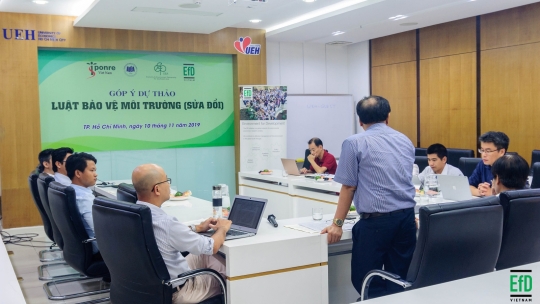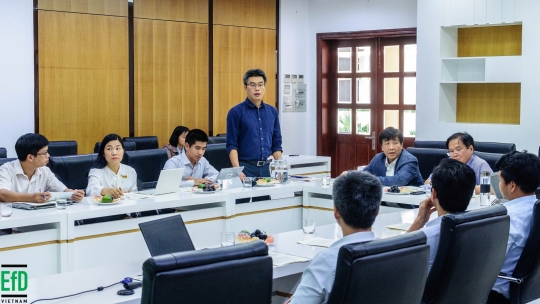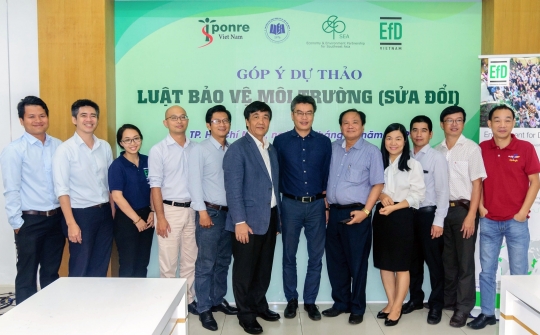It is a long journey from emerging ideas to the intermediate research results, then policy implication and finally its implementation. During last decade, EfD-Vietnam researchers have explored and conducted various studies related to the environmental management in this country, from the biofuel consumption, mangrove forest devolution, urban waste management, fresh water usage and energy savings to the stakeholder’s preferences and the cooperation in the society, etc. These certified outcomes on good international peer-reviewed journals have accumulatively created opportunities to transfer the message on environmental management to the policymakers. Starting from the Policy Dialogue on the “Economic approaches for the management of air, water, waste and marine: lessons learnt and ways forward” which was organized by the Environment for Development Initiative in Ha Noi in 2018, the EfD-Vietnam researchers have more opportunity to collaborate with the policymakers by contributing our recommendations focusing on economic tools with scientific evidence.
Changing from a central planning to market oriented economy, in Vietnam, these market-based instruments have been crowded out by command and controls for years until several special cases on the environment occurred. Acknowledging the importance of these economic approaches, in the last year of the last decade, the Ministry of Natural Resources and Environment has made a draft of the Law on Environmental Protection amended in which a new chapter on the economic tools, policy mechanisms and resources for environmental protection has been inserted.
On 10 November 2019, by the request of the Minister, the EfD-Vietnam together with the Ministry of Natural Resources and Environment Institute of Strategy and Policy discuss about the draft of the law and focused mainly on the new chapter. At the dialogue, the policy implications to policymakers were synthesized from published research works, from practical experience when doing the experiment and survey and contact with stakeholders. In addition to the basic principles of environmental policy adopted in the Environmental Laws from developed and developing countries, various types of environmental management tools are discussed in detail, including: (i) Regulatory tools (Technology standards and performance standards); (ii) Market-based instruments (Taxes, fees, charges, subsidy, deposit & refund, tradable permits); (iii) Information-based tools (Voluntary agreements, information provision, education); and (iv) Other tools (such as Research & Development, behavioral nudges, and legal responsibility). In which, the content of tools based on Market-Based Approaches was discussed in depth and thoroughly including tax, non-tax and ownership for the tradeable emission permits market and the emissions reducing credits. Other topics that complement the bylaws were also presented at the discussion such as insurance, eco-labels and public procurement, and ecological compensation mechanisms.
At the end of the discussion, policymakers and consultant on behalf of the Minister of Natural Resources and Environment and the working group on the Law of Environmental Protection amendments expressed deep gratitude to the EfD-Vietnam researchers and policy advisers who have shared their experiences, contributed relevant ideas and had scientific arguments to help amend and supplement the Law on Environmental Protection in a more complete way, contribute to the construction and development of the country in the field of resource exploitation and environmental protection in an effective and sustainable manner.
